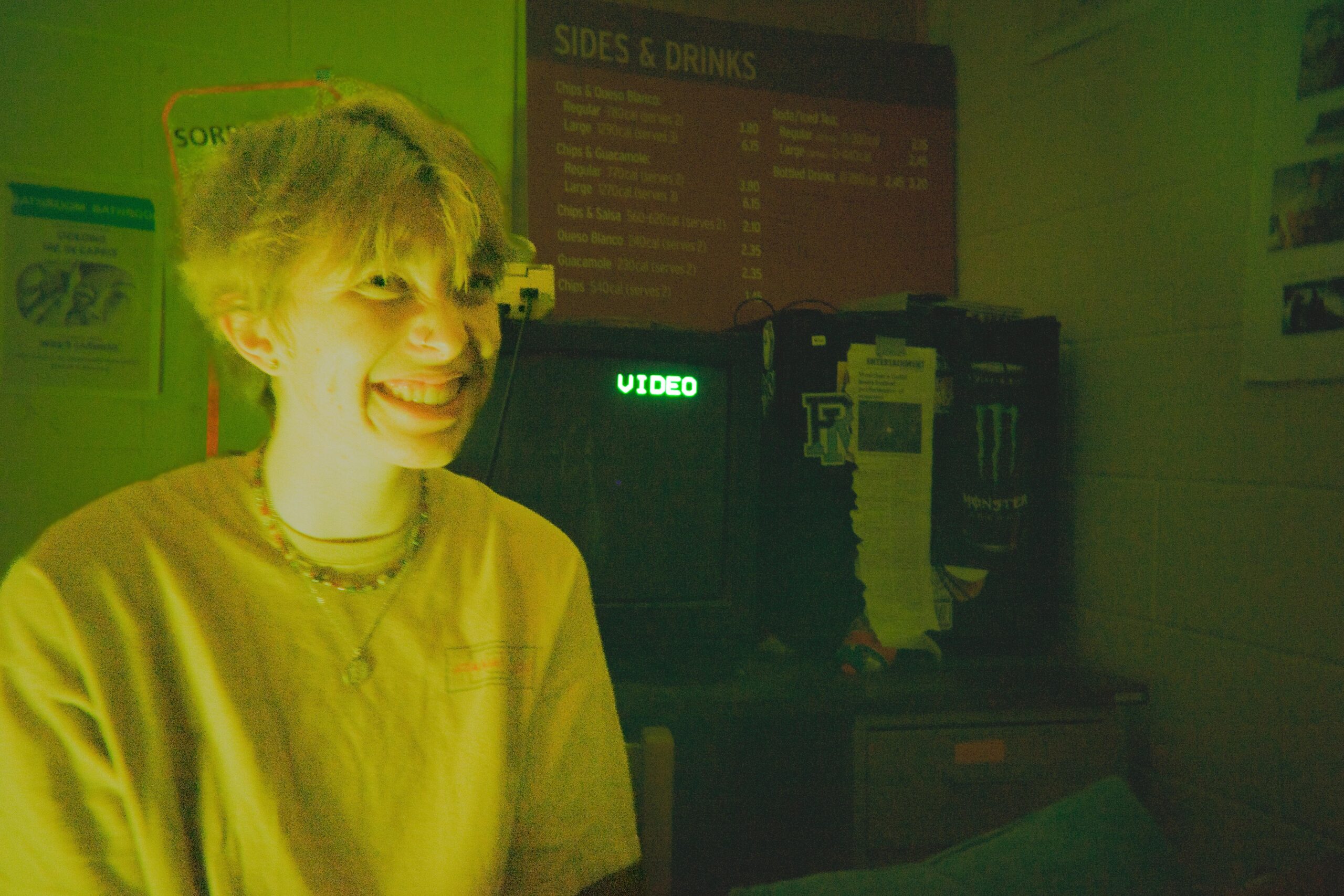Marley Fitzpatrick, under the artist name of fitzy, is a singer songwriter from Massachusetts whose journey with music has been evolving with him throughout his life.
Fitzpatrick’s music is heavily influenced by 90s alternative rock, such as the band Radiohead. When fitzy was 11-years-old, he saw Twenty One Pilots live. He found himself intrigued by the way Twenty One Pilots interacted with their audience, and he decided that he wanted to do the same thing.
“It altered my brain chemistry, it looked like they were having a lot of fun,” fitzy said.
Fitzpatrick comes from a musical background. His dad, brother and grandfather were musicians, so growing up he had access to instruments and equipment.
“Sometimes I’d describe my music as if someone gave Eliott Smith an electric guitar,” fitzy said.
Fitzpatrick has multiple songs on Spotify, with his song “Fight Club” having over 180,000 listens. This song was inspired by multiple things, according to fitzy. Fitzpatrick is queer, and his relationship with masculinity is different from his guy friends that he hangs out with.
Fitzpatrick opened up about the struggles men have to face when trying to express their feelings.
“I was talking to one of my friends, and he told me that he doesn’t feel like he can talk to other guys about his feelings,” fitzy said.
He expressed that men have a hard time expressing themselves, because they don’t want it to make them seem vulnerable. Tying in his own experience with queer masculinity, he expressed how vulnerability is sometimes seen as shameful by people, and this can resort to some people using violence as an emotional outlet. That’s how “Fight Club” eventually came to be.
Fitzpatrick’s popularity didn’t stop at that one song, however. He uploaded a cover of “That Funny Feeling” by Bo Burnham on Tik Tok, which currently sits at 1.1 million views.
“The response was really overwhelming,” fitzy said.
Other artists reposted his video, one being Aurora. A record label ended up reaching out to him, and he is currently in the process of doing demos for them.
As a film and philosophy major, fitzy takes inspiration from films for some of his songwriting.
“The way I think about storytelling is cinematic,” fitzy said.
Fitzpatrick expressed that sometimes he notices similarities within his life and movies, which helps him create songs. He said that a lot of his inspiration comes from personal experience.
Since fitzy is a new student at URI, he has been getting used to the University’s music scene.
“It’s been really interesting, I’ve never had this much access to other musicians,” fitzy said. “The music community here is really active… The hardest part about being a musician is the fact that I have to do it all alone.”
Fitzpatrick’s parents have always been supportive of his music career. However, he has to navigate production and marketing by himself. When everything is driven by social media, it can be stressful to navigate both creating and marketing, according to fitzy. Another difficult part of social media is being able to please people while also sticking to his core values.
“People will come into my comments, and tell me how I should change my lyrics,” fitzy said. “People can sometimes feel they have ownership over you and your work.”
Fitzpatrick described the difficulties of the music industry and provided some insider advice for upcoming musicians.
“Anything you think you can’t do by yourself, you can and it is worth learning,” fitzy said. “I used to think I had to wait for a manager to pick me up, but I’ve managed to build a following all by myself. You are capable of doing anything by yourself.”
193 Coffeehouse holds open mic events, which fitzy regularly attends. He can also be found on Spotify under his artist name.




